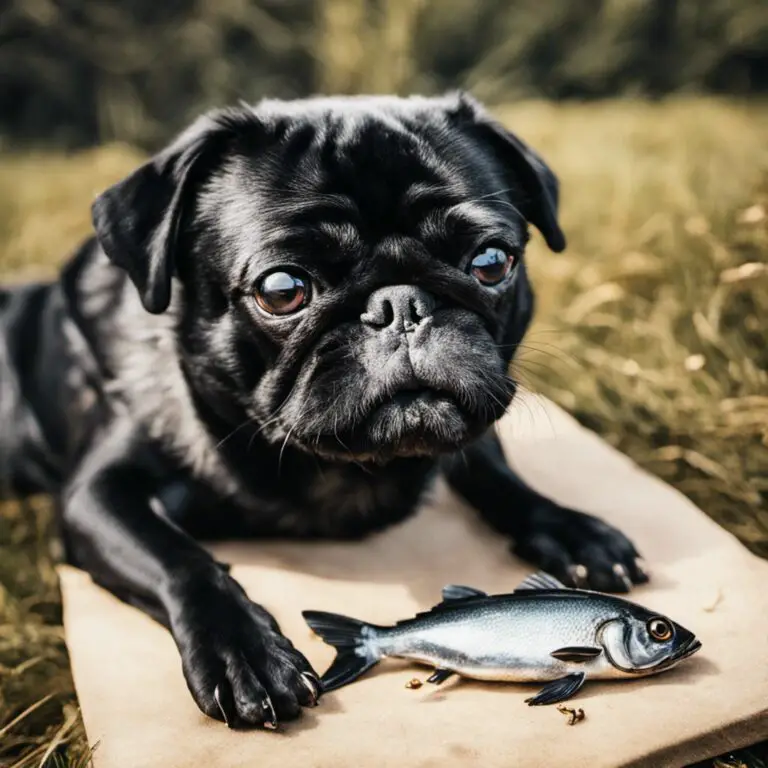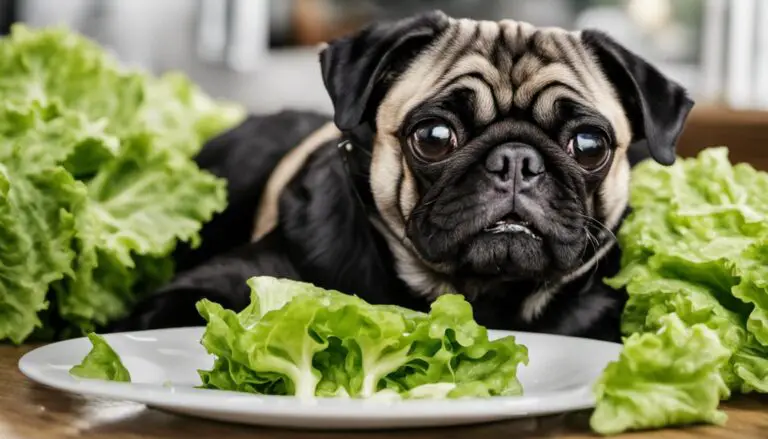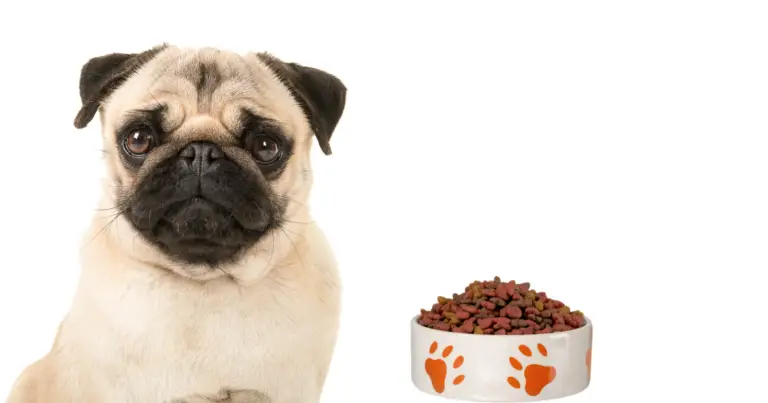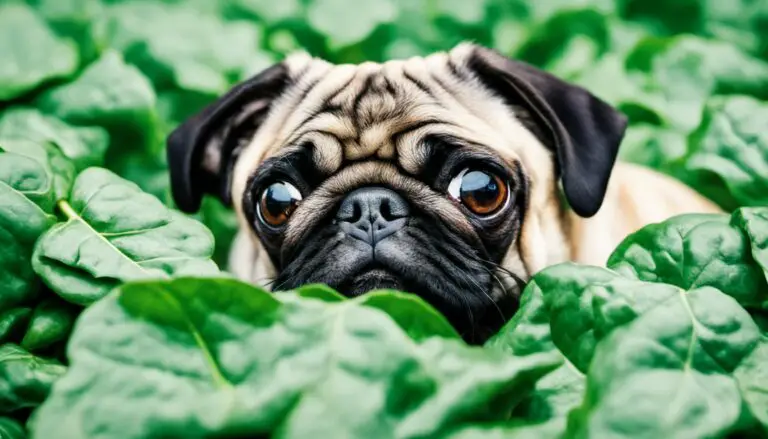Can Pugs Eat Plums? Decoding the Canine-Fruit Dilemma
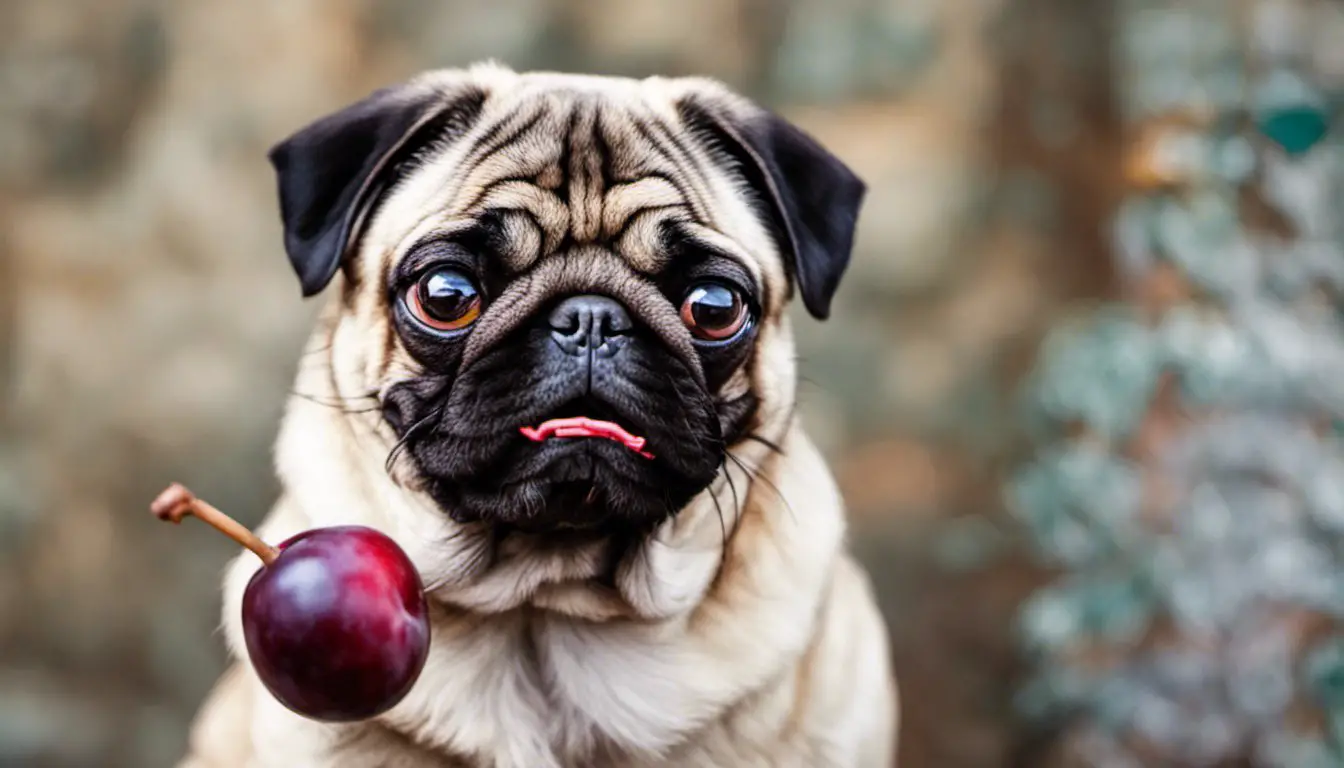
As a pug owner, you might wonder if sharing a fruit-like plum with your furry friend is safe. While dogs enjoy various fruits and vegetables as treats, knowing which ones are safe and which could harm your pug’s health is crucial. In this article, Can Pugs Eat Plums, we will explore whether pugs can safely consume plums and what precautions you should take to ensure their well-being.
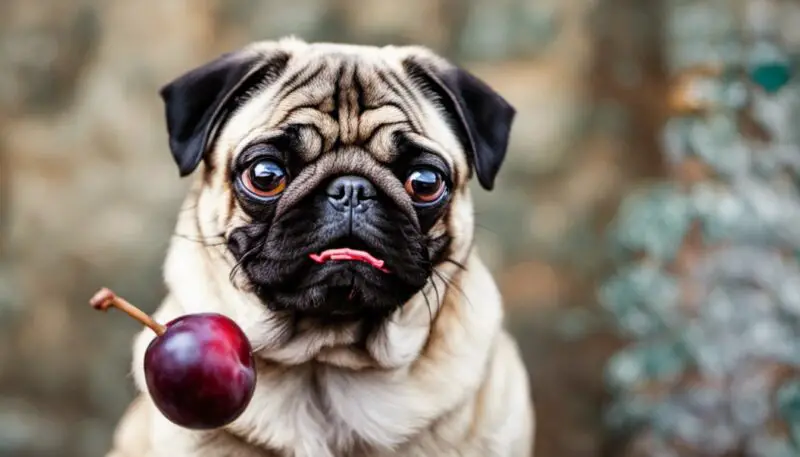
Plums can be a delicious and healthy treat for your pug, as they are rich in nutrients and fiber. However, it’s essential to remember that moderation is key, and plums should only be offered as an occasional treat. The most important thing to be cautious about is the plum pit. Plum pits contain toxins that can be harmful to your pug’s health, and they can also pose a choking hazard or lead to intestinal blockage source. Therefore, before offering plums to your pug, it’s vital to remove the pit carefully.
By providing your pug with well-chosen and safely prepared fruits, you can ensure they enjoy a varied diet without risking their health. Remember the potential hazards of each fruit, and always consult your veterinarian if you have concerns about introducing new foods into your pug’s diet.
Contents
Table of Contents
Understanding a Pug’s Diet
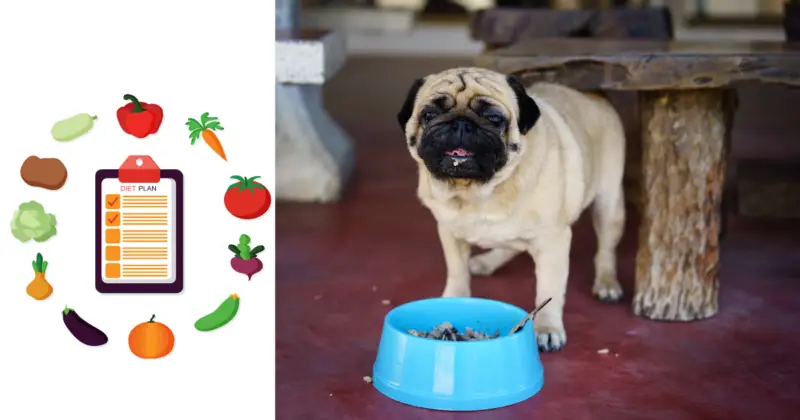
When planning your pug’s diet, knowing their unique dietary needs is important. Pugs are a special dog breed with specific nutritional requirements that differ from other breeds. To ensure optimum health, feeding your pug a balanced, nutrient-rich diet tailored to their needs is essential.
Get The Free Food Eating Guide That Keeps My Pug Happy and Playful Even at 13 Years Old
100% Beginner Friendly & Lists Real Foods Your Pug Can Actually Eat!

Like all dogs, Pugs primarily thrive on a diet consisting of high-quality dog food, which contains meat as its main ingredient. Meat provides essential amino acids and nutrients that support your pug’s overall health and growth. When selecting dog food, look for those specifically formulated for pugs or medium-sized dogs, as they typically cater to the breed’s unique dietary requirements.
Besides regular dog food, you can also incorporate some fruits and vegetables into your pug’s diet to provide additional nutrients and variety. However, it is crucial to understand which foods are safe and which ones can be harmful. For example, plums are not an ideal fruit option for pugs.
While the fruit’s flesh is generally safe for your pug to eat in moderation, the plum pit can be dangerous due to its high cyanide content and the potential to cause choking or intestinal blockages. To complement your pug’s diet, stick to other safe fruits, such as blueberries.
In addition to fruits and vegetables, you can offer pug-specific treats designed for dogs. These treats serve as a tasty reward, can help with dental health, and provide enrichment. Just remember to monitor the number of treats your pug consumes, as excessive treats may lead to weight gain and health issues.
Ultimately, the key to a healthy pug diet is providing a diverse array of nutrients through high-quality dog food and safe supplementary fruits and vegetables. Maintaining a balanced and breed-appropriate diet can ensure your pug’s long-term health and happiness.
Can Pugs Eat Plums
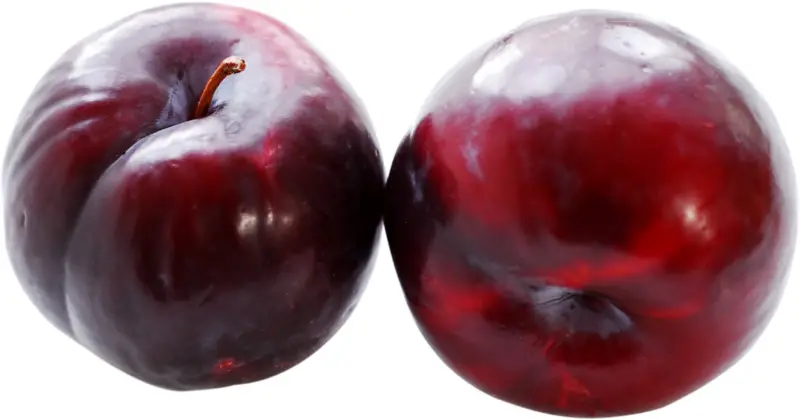
When it comes to feeding your pug, it’s essential to be cautious about the types of fruits they can consume. You might be wondering if plums are safe for your pug. The answer is that plums can be harmful to dogs, including pugs, due to the presence of certain compounds and the pit.
Plums contain a natural substance called amygdalin, which can be toxic to dogs when ingested in large quantities. Amygdalin is found in the plum’s seeds, leaves, and stems, but the most significant risk comes from the pit. Aside from the choking hazard when a dog chews or swallows the pit, it can release cyanide, a highly toxic substance. Signs of cyanide poisoning in dogs include loss of appetite, weakness/lethargy, and diarrhea.
Although the flesh of the plum is not toxic to dogs, it contains high amounts of sugar, which is not ideal for pugs, a breed prone to obesity and other health issues. As a result, it is best to avoid giving them plums altogether. Instead, consider offering your pug-safe fruits like apples, blueberries, and watermelon, which are great sources of vitamins and fiber without the risks of plums.
In conclusion, while the occasional nibble of plum flesh might not cause immediate harm to your pug, including this fruit in their regular diet is not recommended. Other fruits are more nutritious and safer for them to consume. Always consult with your veterinarian whenever you’re unsure whether a particular type of food is safe for your pug.
Can Pugs Eat Plums? Watch this
Negative Effects of Plums
While plums can be a healthy treat for your pug, there are some negative effects to keep in mind. Firstly, the pit of the plum can be quite dangerous to dogs. When ingested, the plum pit contains a small amount of cyanide, which is toxic to dogs. In addition to the risk of cyanide poisoning, the pit itself can be a choking hazard and may cause a blockage in your dog’s digestive system if not removed.
It’s not just the plum pit that poses risks to your pug. The leaves and stems of plum trees also contain cyanide, making them toxic as well. Ensure that your pug doesn’t consume any parts of the plum tree, as this could lead to cyanide poisoning, which can cause symptoms such as tremors, vomiting, and difficulty breathing.
Consuming too many plums can also negatively affect your pug’s overall health. Overeating plums can lead to weight gain and, in worst-case scenarios, contribute to obesity. Additionally, plums have a relatively high sugar content, so too many can increase the risk of your pug developing diabetes.
Feeding your pug an excessive amount of plums can also cause digestive problems. Excessive consumption of plums can result in diarrhea and gastrointestinal discomfort. Be mindful of serving sizes, and avoid offering plums as a daily treat.
Lastly, although rare, some dogs may develop an allergy to plums. After feeding your pug plums, consult your veterinarian immediately if you notice any adverse reactions, like itching or swelling.
To minimize the risks, always remove the pit, stem, and leaves when offering plums to your pug, and monitor their consumption closely. Also, remember to introduce plums as a treat in moderation to maintain your dog’s health and well-being.
Symptoms of Plum Toxicity
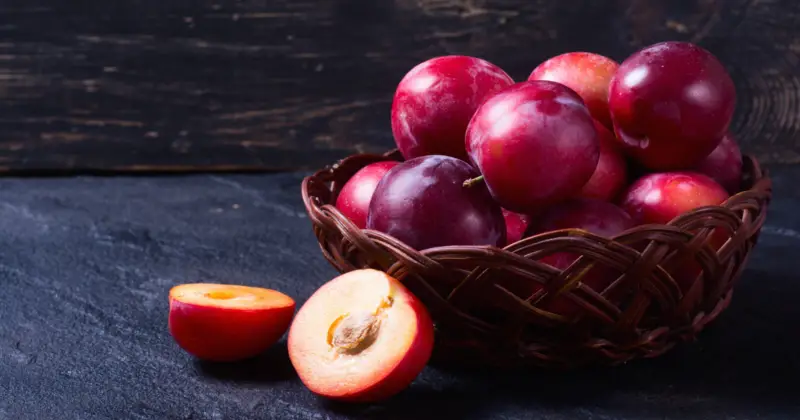
If your pug consumes a plum, it might experience some adverse effects due to its toxicity. You might first notice that your pug exhibits symptoms such as vomiting and diarrhea. This is because the stems, leaves, and seeds of the plum contain hydrogen cyanide, which can be toxic to dogs if consumed in large quantities source.
In addition to the gastrointestinal symptoms, your pug might also suffer from gas and a loss of appetite. As a result, they may be unwilling to eat their regular meals. Moreover, the high sugar content in plums could lead to an upset stomach, especially if your pug is not accustomed to consuming fruits. Consuming too many plums can also result in weight gain and other health issues over time source.
Allergies are another potential concern when it comes to feeding pugs plums. While it’s less common, your pug could be allergic to plums, resulting in more severe reactions such as difficulty breathing or panting. If your pug is experiencing any of these symptoms after consuming a plum, it’s crucial to contact your veterinarian as soon as a possible source.
In conclusion, plum toxicity in pugs can manifest in several ways, including vomiting, diarrhea, gas, loss of appetite, allergies, and an upset stomach. If your pug shows any of these signs after consuming a plum, it’s essential to consult your veterinarian for guidance and potential treatment options.
Pugs and Other Fruits
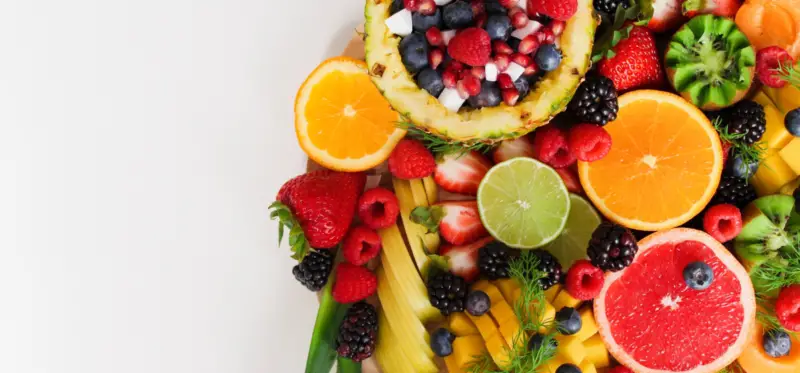
Fruits can be a healthy addition to your pug’s diet, as they are packed with vitamins, fiber, and antioxidants. However, not all fruits are safe for your pug to consume. Let’s have a look at some fruits your pug can enjoy and those you should avoid.
Safe fruits for pugs:
- Apples: Your pug can enjoy apples (minus the seeds) as they are a good source of vitamins A and C, and fiber. Make sure to remove the core and seeds before feeding them to your pug.
- Bananas: Pugs can eat bananas moderately due to their high sugar content. They provide essential minerals like potassium and can be a delicious, occasional treat.
- Blueberries: These tiny berries are packed with antioxidants, making them an excellent choice for your pug. They can be fed fresh or frozen.
- Cantaloupe: This low-calorie, high-water-content fruit is safe for pugs and can keep them hydrated and revitalized.
- Pear: Pugs can eat small pieces of pear, but, like apples, ensure the seeds and core are removed as they can harm your dog.
- Pineapple: This tropical fruit is safe for pugs if served in small, bite-sized pieces. It’s a nutritious snack but should be limited due to its high sugar content.
- Watermelon: Pugs can enjoy seedless watermelon as an occasional treat, as it is hydrating and low in calories.
Fruits to avoid:
- Avocado: It’s best to keep avocados away from your pug, as they contain a toxin called persin that can cause health problems for your dog.
- Cherries: Cherry pits contain cyanide; even a small amount can be toxic to dogs. Avoid feeding cherries to your pug.
- Grapes and Raisins: These fruits can cause kidney failure in dogs, so never feed them to your pug.
In addition to fruits, some vegetables are beneficial for pugs, such as carrots, green beans, and broccoli. On the other hand, avoid vegetables like raw potatoes, mushrooms, and green tomatoes, as they can harm your pug.
Remember to introduce fruits and vegetables into your pug’s diet gradually and in small quantities to avoid digestive issues. Also, always consult your veterinarian before making significant changes to your pug’s diet.
How to Safely Feed Pugs Fruits
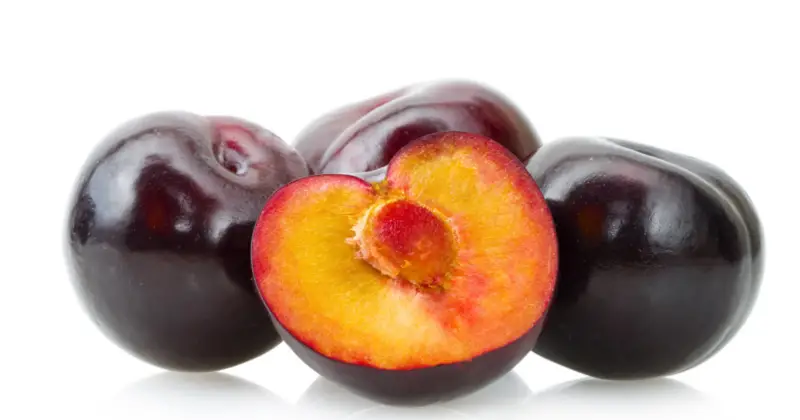
If done correctly, feeding your pug fruits can be a healthy and tasty treat. Before introducing any new fruit to your pug’s diet, it is always a good idea to consult a veterinarian first. They can guide you on which fruits are safe and appropriate for your dog.
When giving your pug fruits, always do so in moderation. Overfeeding them with fruits can lead to digestive issues or an upset stomach. Fruits should only be a small part of your pug’s diet as they still require balanced nutrition from their primary dog food.
Before feeding any fruit to your pug, be sure to wash and clean it thoroughly. This will remove any pesticides, dirt, or residue that may harm your pet. Also, make sure to cut the fruit into small, manageable pieces. This will help prevent choking hazards and make it easier for your pug to chew and digest.
It is essential to understand that not all human food is safe for pugs. While fruits in moderation can be a tasty treat, always be cautious about the safety and potential hazards of certain fruits. For example, plums can be fed to your pug, but you should remove the pit first as it is toxic and can cause choking or intestinal blockages Can Dogs Eat Plums?
Lastly, remember to stay knowledgeable about which fruits are suitable for pugs, and always consult your vet if you are unsure. By following these guidelines, you can safely treat your pug to some delicious and nutritious fruit treats.
Health Benefits and Risks of Fruit in a Pug’s Diet
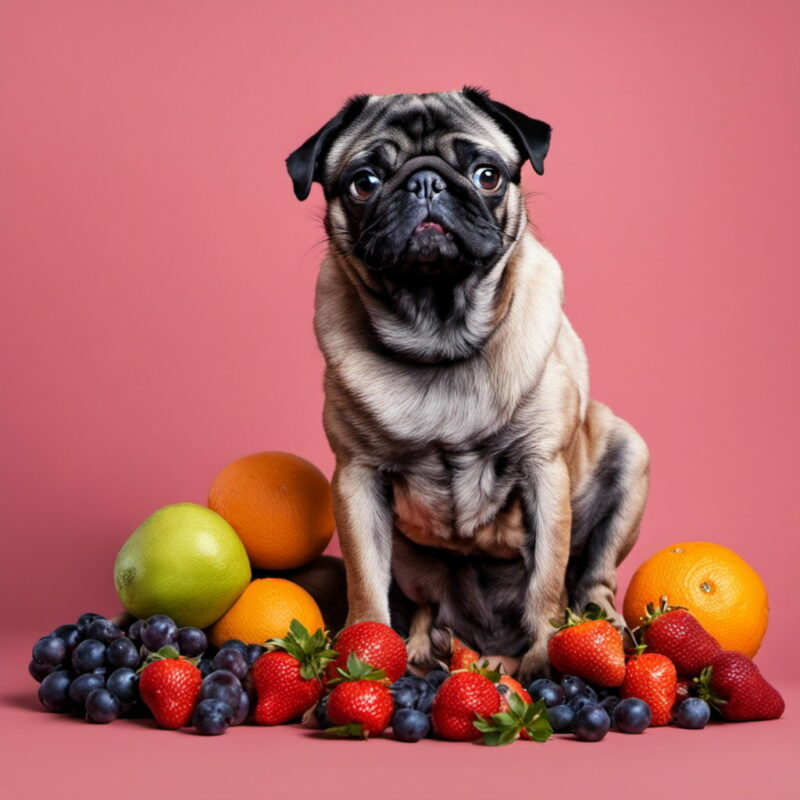
Incorporating fruits into your Pug’s diet can provide various health benefits. Fruits are rich in vitamins, minerals, antioxidants, and fiber, which can help boost your Pug’s immune system and overall health. For instance, blueberries are high in vitamins, minerals, and fiber, contributing to strengthening your Pug’s immune system and reducing the risk of heart disease.
Similarly, apples are a great addition to your Pug’s diet as they are high in fiber, vitamin C, and vitamin A, which aid digestion and help maintain a healthy weight. However, removing apple seeds before feeding them to your Pug is essential, as they contain amygdalin, which can be harmful when consumed in large quantities.
On the other hand, some fruits can pose risks to your Pug’s health. For example, avocados are unsafe for Pugs due to their high content of persin, a toxin causing diarrhea and vomiting in pets. It is also crucial to avoid feeding your Pug fruits with high sugar content, as it can lead to weight gain and other health issues.
Incorporating vegetables into your Pug’s diet can also offer health benefits. Sweet potatoes, for example, are highly nutritious and provide essential vitamins and minerals that support your Pug’s overall health. However, be cautious not to overfeed your Pug with high-calorie fruits or veggies, as it can lead to weight gain.
Peach pits should be strictly avoided, as they pose a choking hazard and can cause blockages in your Pug’s digestive system. If your Pug happens to consume a plum or peach pit, monitor them closely for signs of illness, such as vomiting, loss of appetite, weakness, and diarrhea.
In summary, incorporating fruits and vegetables into your Pug’s diet can be beneficial; however, knowing which ones are safe is essential and considering the potential risks associated with certain fruits is essential. Always provide moderation and avoid high-sugar or high-calorie fruits to maintain your Pug’s overall health.
Frequently Asked Questions: Can Pugs Eat Plums
Can pugs have plums?
Yes, pugs can have plums, but only in small amounts and with some precautions. You should remove the pit, leaves, and stems before giving your pug plums, as these parts can be toxic to dogs.
Can dogs eat plums with skin?
Yes, dogs can eat plums with skin, as long as the fruit is washed and the pit is removed. However, it’s essential to limit plum intake because too much can lead to gastrointestinal issues, such as diarrhea.
What should I do if my dog ate a plum pit?
If your dog has ingested a plum pit, it’s crucial to contact your local veterinarian immediately. Plum pits contain cyanide, which is toxic to dogs and can cause adverse reactions. Additionally, the pit can cause blockages or other injuries to the gastrointestinal tract.
How much plum is toxic to dogs?
There’s no specific amount of plum that is toxic to dogs, as individual sensitivity may vary. However, it’s essential to ensure your dog doesn’t eat the pit, leaves, and stems, which contain toxic substances. Stick to small amounts of plum flesh and monitor your dog for any adverse reactions.
Can dogs eat black plums?
Dogs can eat black plums as long as you remove the pit, leaves, and stems, and serve the fruit in small portions. Remember to keep the portions moderate to avoid potential gastrointestinal issues.
Can dogs have red plums?
Yes, dogs can have red plums, similarly to other plum varieties. Ensure you remove the pit, leaves, and stems and provide your dog with only small portions to prevent any negative side effects.


